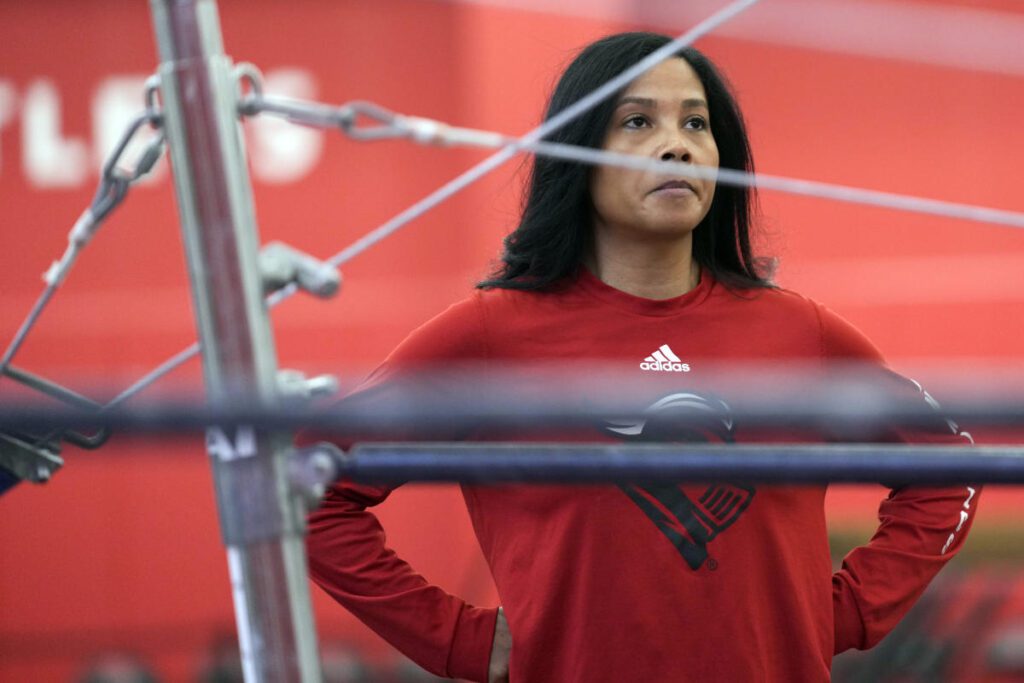Rutgers Places Women’s Gymnastics Coach on Leave Amid Investigation
Rutgers University has placed its women’s gymnastics head coach, Umme Salim-Beasley, on paid administrative leave following the results of an investigation that described the gymnastics program as “divided and dysfunctional.” The announcement was made on Friday, shortly after the external investigation’s findings were disclosed.
The investigation, initiated by several complaints from Rutgers gymnasts, indicated that Salim-Beasley, who has led the team since May 2018, “lost control” over her squad and was seemingly unaware of the impact her behavior had on her athletes. The report cast light on significant issues within the program’s environment and Salim-Beasley’s coaching style.
Improper Relationships and Leadership Issues
The inquiry also revealed that Salim-Beasley had an inappropriate relationship with former athletic director Pat Hobbs, suggesting that he should have recused himself from any decisions affecting her due to their relationship, as outlined by university policy. Hobbs resigned last August, citing health concerns, just two days after being informed of the impending investigation regarding his relationship with Salim-Beasley.
While Hobbs declined to provide an interview, he submitted a written statement without discussing his relationship with Salim-Beasley. In contrast, Salim-Beasley spoke with investigators for over five hours but refrained from addressing questions related to Hobbs.
Concerns from Gymnasts
Several gymnasts who participated in the investigation voiced their concerns about Salim-Beasley’s treatment, stating that she became “dismissive” towards them in cases of injury. Multiple athletes reported feeling pressured to train or compete despite experiencing pain, which led to five of them choosing to medically retire during her leadership.
Gymnasts described instances where Salim-Beasley allegedly encouraged those with whom she had strained relationships to retire in order to reallocate their scholarships. However, Salim-Beasley insisted that she never pressured athletes to compete while injured.
Mixed Reviews and Mental Health**
The investigation characterized the current competitive season as fraught with “widespread discord and conflict.” Opinions diverged sharply regarding Salim-Beasley’s responsibility for the negative atmosphere, with some athletes praising her coaching style while others pointed to the internal dynamics of the team as contributing factors.
Athletes also expressed that Salim-Beasley and the coaching staff were inadequate in addressing mental health issues. One gymnast likened conversing with Salim-Beasley to “talking to a wall.” Contrastingly, the university’s director of sports psychology praised Salim-Beasley as “the most sensitive and mental-health-conscious coach” he has encountered, indicating her awareness stems from her experiences as a former gymnast and a mother.
Conclusion
The investigation concluded that despite Salim-Beasley’s genuine intentions to support her athletes, her conduct has left many feeling hurt and marginalized. The Rutgers women’s gymnastics team is set to begin Big Ten competition on Saturday against Washington.


